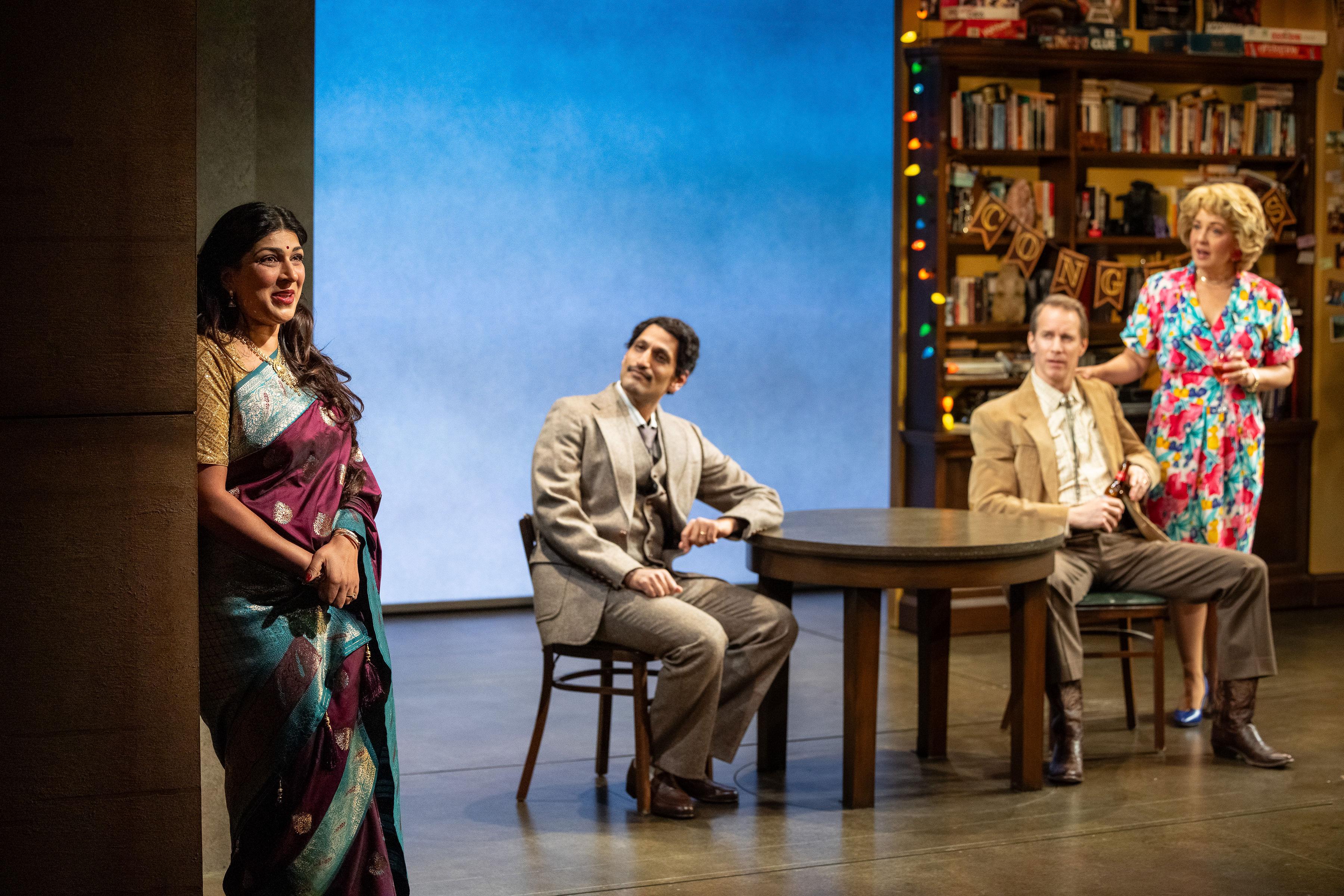For our first episode of the Converge Lecture Series Podcast, we're joined by writer George Saunders
Saunders has been dazzling readers for more than two decades with his essays, articles, short stories, and now his debut novel: Lincoln in the Bardo, which won the prestigious Man Booker Prize for fiction last year.

The book centers around one fateful night in a graveyard in Georgetown, in 1862. Following the death of his 11-year-old son, Willie, a grief-stricken President Abraham Lincoln pays a visit to the crypt, to hold his son's body one last time. Saunders tells the story using fragments from historical sources and the narration of a motley chorus of ghosts who live in the graveyard, stuck in a kind of purgatory between this world and the next.
Saunders is a writer of extraordinary imagination, wit, and compassion. His work -- from Lincoln in the Bardo to short story collections like Tenth of December and Pastoralia -- often focuses on characters in dire circumstances or dystopian worlds, who are struggling, as we all are, to make sense of their lives.
Saunders was invited to speak in Colorado Springs as part of Converge Lecture Series, which brings writers and poets to the city to share their reflections on art, life, and the topic of "moral beauty."
In advance of that talk, he spoke to 91.5 KRCC about his work, his background, and how he views the creative process.
Listen to the full interview in the player above, or listen and subscribe on iTunes and Google Play.
Interview Highlights
On writing's effect on the mind:
For me writing is a deeply pleasurable, kind of playful thing, but when I come out of it I notice that my mind's been working in a different mode than it usually does. I think you could approximate that mode by saying it's a little more patient, a little more curious, it has a better sense of humor, it's more willing to reside with this other person that's your character.
You know, you're making up some guy and you notice that your first impulse might be to make fun of him or use him in some way. But as you write over many days and many weeks, [that character] starts to come alive for you in a way, and almost automatically you start to render him more of your sympathetic feelings... [Writing] makes you wake up to the fact that other people are as real as you are.
On how his Catholic upbringing has informed his writing:
Honestly, I'm just really grateful that I had those experiences when I was young because it puts a little bit of an anti-materialist vaccine into your body. If you have, as a young person, a powerful, let's call it "spiritual," experience, I think you always have a longing for that again. Even it's many years before you find a way to recreate that, the longing is still there. Maybe it's just the fact that you have some little taste that the literal isn't sufficient -- that we can think, and we can talk, and we can analyze, and we can conceptualize, but there are depths below that that are very real, maybe more real than the literal.
So years later, I think I recognized that longing for mystery when I first started writing well. Suddenly, my stories were saying things that I hadn't really meant for them to say, that I didn't really understand, but that I somehow still kind of approved of. That actually did really remind me of those early church experiences.
On how he's handled his recent success:
I had a tendency to think that if I just succeeded enough, the things that were vexing me would fall away. So, you know, my fear of being inadequate, my fear of dying, my fear of being irrelevant, would just go away. Well, that doesn't happen. The more success you get, the more you see that those things are not negotiable... My feeling is, as long as you don't think that succeeding is going to change the essential dynamic, then you're OK... actually you can use the success and the hard work to raise the stakes of the spiritual questions.
91.5 KRCC is a media partner with Converge Lecture Series.








